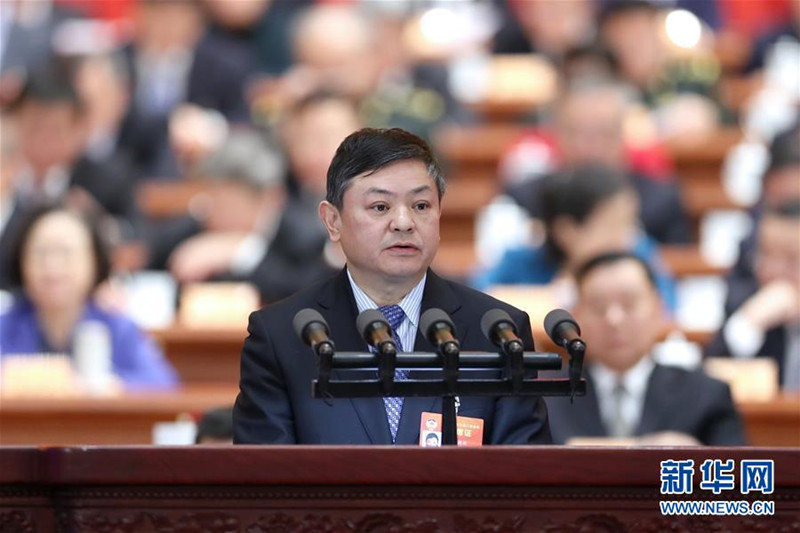CPPCC member calls for better laws to fight pollution

Huang Runqiu, a member of the CPPCC National Committee, makes the remark at the fourth plenary meeting of the second session of the 13th National Committee of the Chinese People's Political Consultative Conference. [Photo/Xinhua]
China needs stricter laws and enforcement to fight against environmental pollution, said a senior official from the Ministry of Ecology and Environment.
Huang Runqiu, who is also a member of the CPPCC National Committee, made the remark at the fourth plenary meeting of the second session of the 13th National Committee of the Chinese People's Political Consultative Conference.
The event was held on March 11, 2019 at the Great Hall of the People in Beijing.
Pollution prevention and control is one of three major battles that China needs to win for building a well-off society in an all-round way. It has also become a must to meet people's needs for a beautiful ecological environment and to promote the development of high-quality economy.
In recent years, China has formulated and revised many laws related to environmental protection and assessment, as well as pollution prevention and control for air, water and soil. By adhering to strict law enforcement, the country has achieved an obvious improvement in its environment quality.
However, violations in the field are still prominent, such as companies that start construction before receiving approvals, and that discharge excessive pollutants. One major reason is the low cost of breaking the law, which is far outweighed by the benefits reaped by the violator.
Huang called for the formation of a more stringent management system to control pollution. Revision is urgently needed to improve the existing laws and regulations pertaining to the ecological environment, especially those with soft penalties that are not adapted to the current needs of ecological environment management.
Also, China should impose tougher penalties on violations to place high costs on polluters. Severe punishments should be imposed on both companies and individuals responsible for serious environmental harm.
Cooperation between ecology and environment departments and judicial authorities should be enhanced so that they share information, realize two-way consultation on typical cases and deal with major cases together.
The implementation of a credit supervision and management system is another focus, Huang said. The system should cover all polluting enterprises and third-party institutions such as environmental pollution control and monitoring agencies.
When violating relevant laws and regulations, companies and their legal representatives or actual controllers will be recorded in the blacklist of the credit system and face restrictions such as being limited from applying for financing and receiving subsidies.
Incentives are also necessary, said Huang, adding that last but not least ecology and environment departments should improve their supervision methods and set up professional service and technical guidance platforms to help companies develop management programs.
Copyright © The National Committee of the Chinese People's Political Consultative Conference.
All rights reserved. Presented by China Daily.


